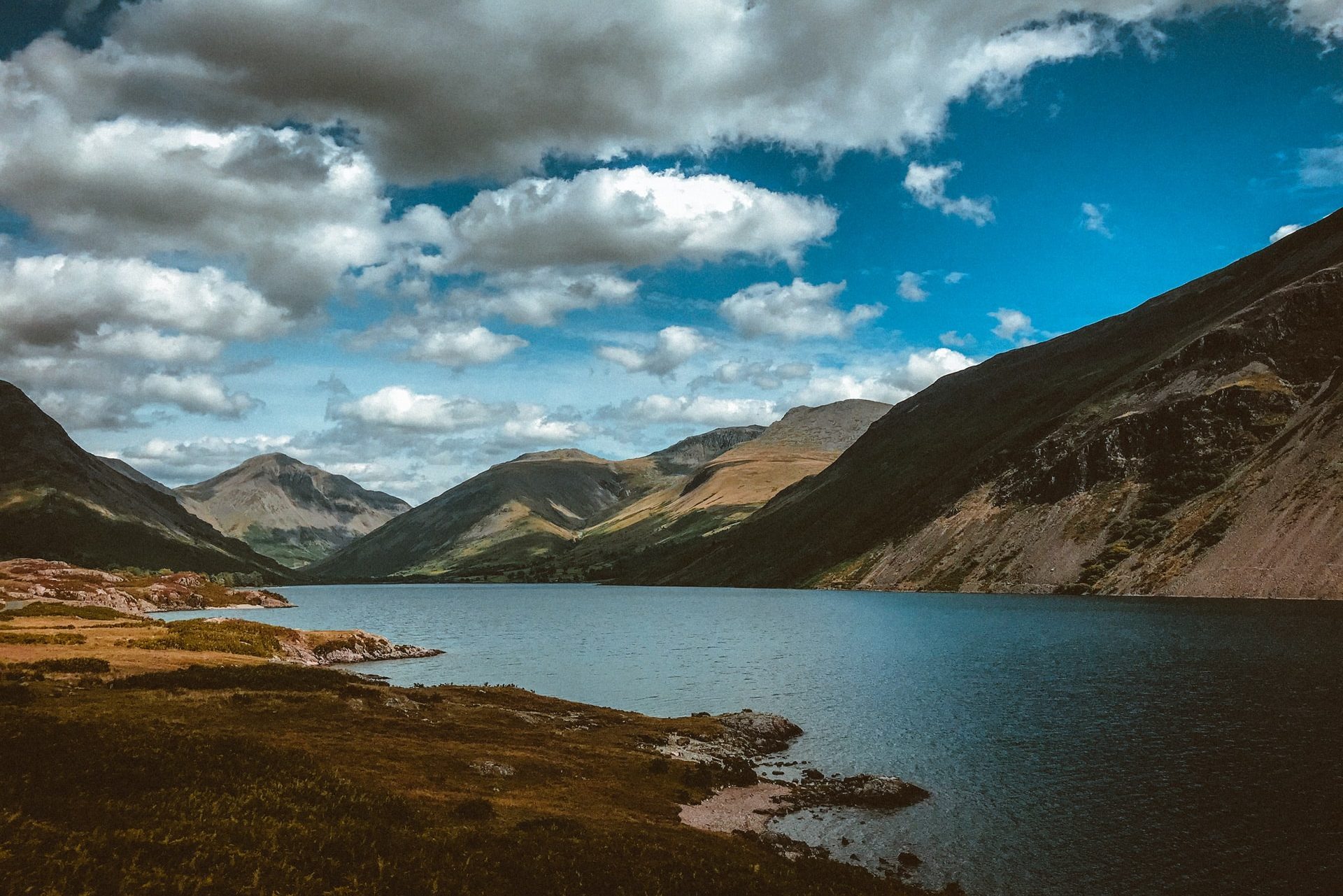Whether it’s the rolling hills of the Yorkshire Dales, the expansive lakes of the Lake District or the wild moorland of Dartmoor, there are plenty of reasons for you to go wild camping in England.
But what are the rules about wild camping in England? In this guide, we will take you through all you need to know to have a wonderful wild camping experience.
Is wild camping legal in England?
Wild camping in England is illegal unless you have obtained prior permission from the landowner.

The Countryside and Rights of Way Act (2000), which sets out the rights of individuals to access private land states that the act:
does not entitle a person to be on any land if, in or on that land, he –
(s) engages in and organised games, or in camping, hang-gliding or para-gliding
Countryside and Rights of Way Act – Schedule 2
Until these rights were put in place, it was considered illegal to even cross someones private land!
The introduction of these rights now allows you to cross private land without permission, however, you still need confirmation from the landowner if you wish to camp on their land.
So yes, it is illegal to wild camp, but if you have permission, you’re good to go.
What are the rules for wild camping in England?

Assuming you have been permitted by the landowner to use their land for wild camping, there are other rules that you should try and adhere to when wild camping in England:
- Camp high and off the beaten track on open hills and fells
- Camp well away from roads, house, farms and livestock
- Stay for one night only to minimise your impact on the local environment
- If you must stay longer, stay in the same spot for a maximum of three nights
- Leave no trace that you have camped
- Use a gas stove instead of a fire to limit your use of local resources and impact on the environment
- Bury human waste at least 30m from any water source or path. It should be buried at least 15cm deep and sanitary items and toilet paper should be taken with you, not buried.
- Take all rubbish and food scraps away with you
- Don’t pollute the local area with non-eco friendly detergents and do not use streams of rivers for washing. Take a small bowl with you and dispose of the water away from water courses.
- If you are asked to leave by the land owner you should do so without arguement
- Avoid damaging the area around your camping spot. Don’t dig ditches, remove boulders or destroy plants
- Camp in small groups of one to two tents
- Try to use equipment that blends in with the local scenery, so no bright orange tents!
If you follow the above rules, you should find that most landowners will be accommodating to any requests to stay on their land.
To give yourself a better chance of being allowed to use someone’s land, try to stay for only one night and pitch up around sunset, leaving early the next day.
Where to wild camp in England
The advice for wild camping in England is that you try and use a designated camping site. Whilst this might seem to go against the nature of camping “wild”, there are places you can stay that offer very basic to no facilities, which gives a more authentic wild camping experience.
If you would still prefer to go wild camping in England, below is guidance for the more popular areas to visit.
Dartmoor National Park – Devon
The Dartmoor National Park is a very unique place in England, offering open moorland, deep river valleys and a whole host of rare wildlife.
Another thing that is unique about Dartmoor is that they are very accommodating of people wishing to wild camp in the park itself. The park authority has allocated certain areas of the national park as wild camping friendly and produced a handy interactive map so that you know where it is acceptable to camp.

Now you know where to park, it is important you know when to camp and specifically how to avoid being shot whilst in the park. Yes, you read that right, when to wild camp and avoid being shot.
The Dartmoor National Park is used by the Ministry of Defence (MOD) as a military training area. There are certain areas of the moor that are live firing ranges and as such are very dangerous to cross when training exercises are occurring. Details of when the MOD will be training and where is available on the MOD website.
Don’t let that put you off going to Dartmoor National Park. There are expansive areas outside of the firing ranges that are well worth visiting and great for wild camping.
New Forest National Park – Hampshire
The New Forest National Park covers 220 square miles of fields and woodland, as well as 26 miles of the Hampshire coast.
Wild camping is restricted in this national park and is not advised. The New Forest National Park Authority advises that you stay in an official campsite ran by Camping in the Forest.
Peak District National Park – Central England

The Peak District in central England is a big draw for those interested in the great outdoors and outdoor activities.
With its diverse landscape, caves, cliffs and lakes, there are plenty of things to do for the outdoor enthusiast.
The Peak District National Park Authority does not recommend wild camping without the express permission of the landowner. The authority themselves will not permit their land to be used for wild camping, but they do recommend several campsites that can be found here.
Yorkshire Dales National Park – Yorkshire
The Yorkshire Dales is by far my favourite part of the UK (I am northern so a little biased). Home to beautiful rolling hills, the Yorkshire Three Peaks Challenge and the Wensleydale Creamery (with a free tasting room), the Yorkshire Dales National Park is a great place to enjoy the great outdoors.
Wild camping is discouraged in the Yorkshire Dales, especially during the grouse shooting season. However, Yorkshire is one of the most welcoming areas in the UK and as long as you are discreet, you should find landowners happy to let you stay on their land for a night.
Lake District National Park – Cumbria
The Lake District National Park is the largest in England and home to England’s highest mountain, Scafell Pike. It is also a World Heritage Site.
There’s plenty of activities in the area for the outdoor enthusiast, including climbing, hiking and water sports (naturally).
Similar to other parts of England, wild camping is not allowed in the national park without express permission from the landowner. The Lake District National Park Authority actually owns very little of the land in the area and won’t allow wild camping on the small bit of land they do own.
The recommendation is that you use one of the many wonderful camping facilities on offer in the area.
Can you get fined for wild camping in England?

Whilst wild camping in England is illegal, if you act responsibly you are unlikely to face a fine.
Wild camping is a civil offence in England and you most likely be asked to leave the land you are camping on rather than be punished for trespass. It is important that if you are asked to leave by the landowner you do so as soon as possible as the landowner could pursue you for damages to their land.
As long as you are respectful and ask permission, you will likely be ok.
Is wild camping in England safe?
Wild camping in England is very safe as long as it is done so responsibly.
There are very few dangerous wild or domesticated animals in England that can cause you harm. One danger to look out for is cow and deer, which have been known to attack when feeling threatened and particularly when protecting their young. Also, watch out for the rutting season as you don’t want to get trampled by deer in heat!
More dangerous than cows and deer are actually ticks. These small insects, which live in long grass, can cause Lyme disease, which can lead to paralysis or even heart attacks. Wearing long trousers when out hiking can help to reduce your risk of being bitten.
Natural dangers in England are the same as across the rest of the UK. Try to avoid camping near trees when high winds are expected and away from waterways if heavy rain is forecast.
Fires should be kept small, contained and never left alone. You should particularly avoid fires in wooded areas for fear of causing wildfires and damaging the local environment.
Summary
There are some wonderful places to camp in England and you should try staying in one of the many campsites available to avoid getting into any issues with landowners.
If you want to wild camp with little fuss, head to Dartmoor National Park and camp in one of the designated areas, otherwise make sure you do get permission if you do wish to wild camp in any of the other wonderful national parks.
Resources
- Countryside and Rights of Way Act (2000)
- National Trails Website
- Lake District Recommended Camping Facilities
- Dartmoor Interactive Camping Map

